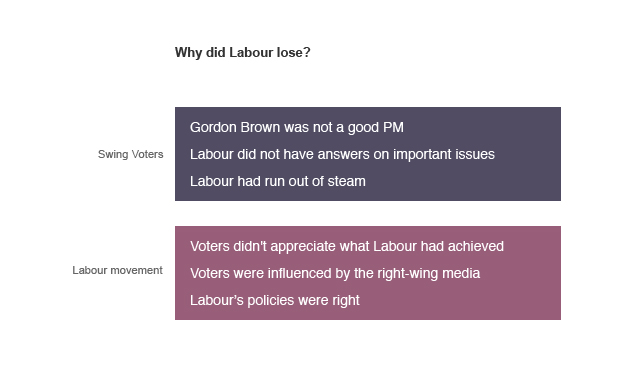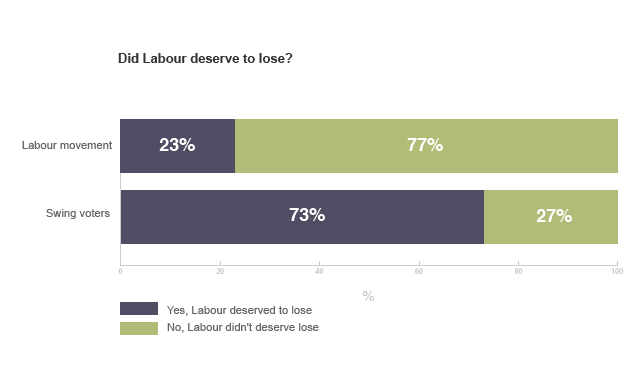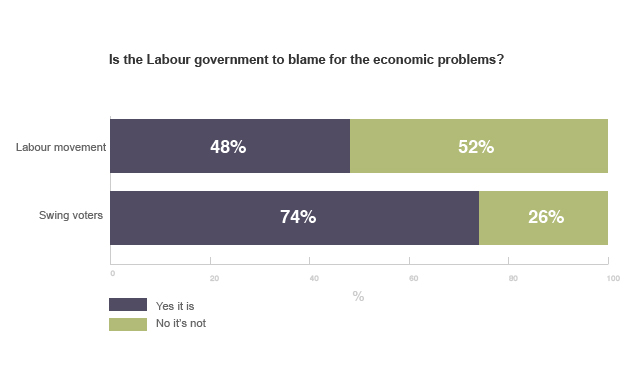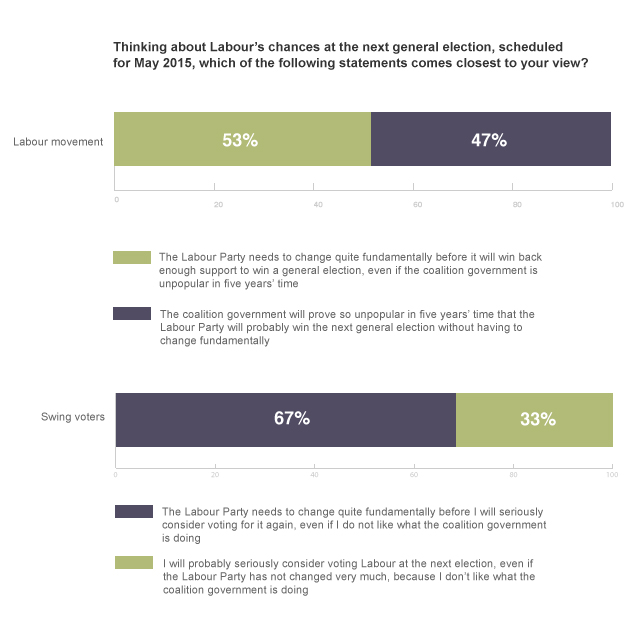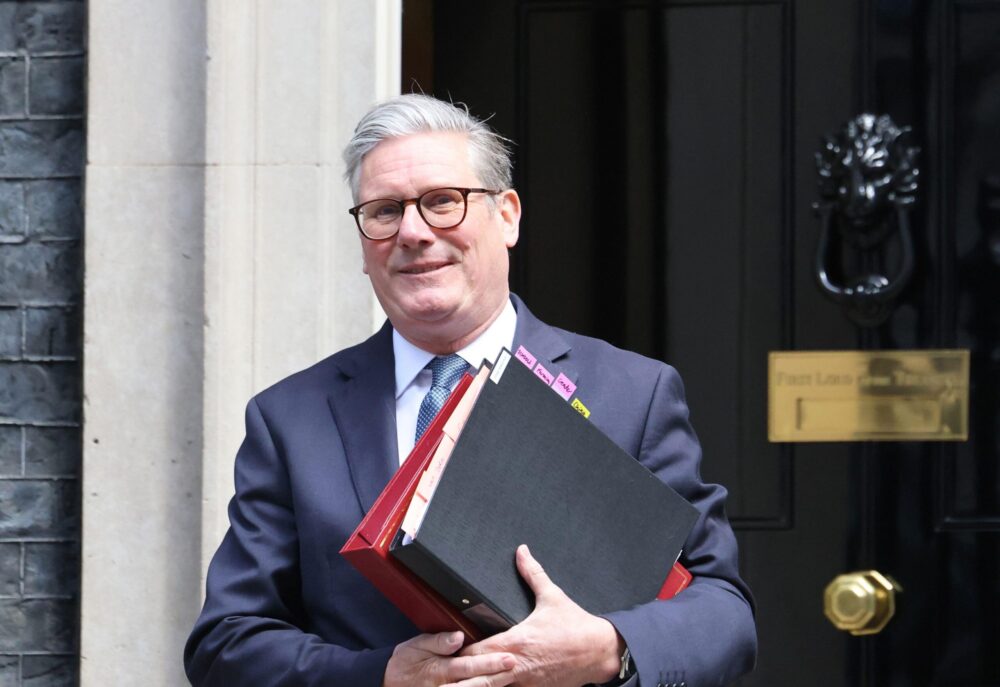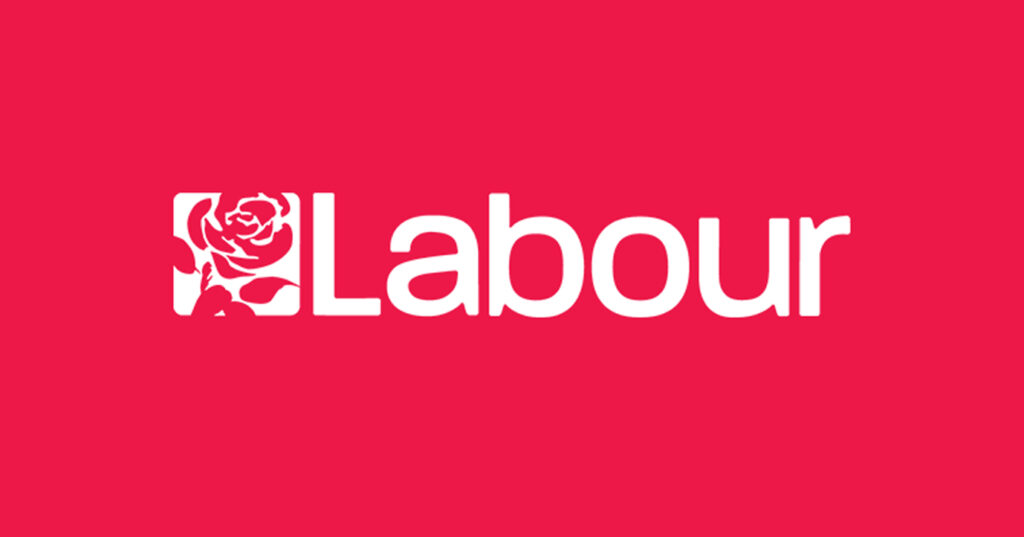
For many years after its 1997 defeat the Conservative Party failed to understand what had happened to it. Too many Conservatives believed not only that the voters had made a terrible mistake, but that the voters themselves would come to realise this and flood back in remorse. Meanwhile, the Tories just needed to stick to their guns. History records the success of this theory in the results of the 2001 and 2005 general elections.
I thought it would be interesting to find out whether the Labour Party is about to make the same mistake. Why does the Labour movement think it lost, and what does it think it needs to do to win again? And how does its view compare with that of swing voters, who supported Labour in previous elections but did not vote for Gordon Brown?
Methodology
Labour movement: Six focus groups of Labour Party members and Labour-supporting members of affiliated trade unions were conducted between 16 and 24 August 2010 in London, Leeds, Manchester and Birmingham. A poll of 2,010 Labour Party members and Labour-supporting members of affiliated trade unions was conducted between 3 and 14 September 2010.
Swing voters: Six focus groups of people who voted Labour at the 2005 election but for a different party in 2010 were conducted between 16 and 24 August 2010 in London, Leeds, Manchester and Birmingham. A poll of 2,091 adults who voted Labour at the 2005 election but for a different party at the 2010 election was conducted between 3 and 13 September 2010.
Summary of key points
Click here to download the full report
Swing voters say Labour lost the election because Gordon Brown was not a good Prime Minister, Labour did not have answers on important issues, and the Labour government had run out of steam. According to the Labour movement, the party lost because voters did not fully appreciate what it had achieved, they were influenced by the right-wing media, and although Labour had the right policies, it did not manage to communicate them effectively.
Three quarters of swing voters say Labour deserved to lose the election. Three quarters of Labour movement respondents say Labour did not deserve to lose.
A majority in the Labour movement believe the party lost the election because its traditional core supporters decided not to vote Labour, not because middle class swing voters went to other parties. Swing voters are more likely to think Labour seriously lost its way and is not on their side than to think the party’s heart is still in the right place and Britain just needed a change.
A majority of swing voters think the Conservative-Liberal Democrat coalition is the right outcome given the number of seats each party won. They are cautiously optimistic about the government and willing to give it a chance; many are pleasantly surprised by David Cameron. Two thirds of Labour movement respondents think the coalition is not legitimate, and Labour should still be in office.
Three quarters of swing voters think the Labour government must accept a large part of the blame for the economic problems it left. A majority in the Labour movement disagree.
Swing voters are more likely than those in the Labour movement to believe the deficit is a serious problem that must be dealt with urgently. More than two thirds of swing voters think the coalition’s proposed cuts are “unavoidable”, compared to less than half in the Labour movement.
A majority of Labour movement respondents think the next leader should support public sector strikes. Swing voters say, by a 21-point margin, that they would be less likely to go back to Labour if this happened.
Swing voters say an apology from Labour for its mistakes in government would make them more likely to consider returning to the party. Those in the Labour movement are resistant to the idea. 69 per cent say the new leader should defend the record of the previous government, especially on the economy; swing voters say this would make them less likely to consider supporting Labour.
A majority in the Labour movement believe the coalition will prove so unpopular that Labour will win the next election without having to change fundamentally. Two thirds of swing voters say Labour will have to change quite fundamentally before they will consider voting for it again, even if they do not like what the coalition is doing.
People in the Labour movement generally believe swing voters to be ignorant (because they did not understand what Labour had achieved), credulous (because they believed what they read in the right-wing press) and selfish (because they thought only of their own interests, rather than public services and the poor).
